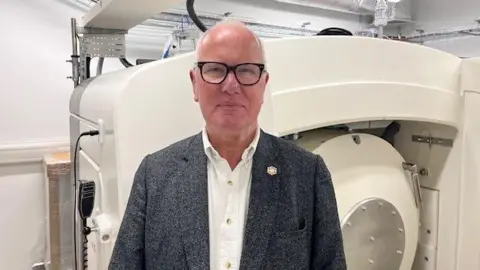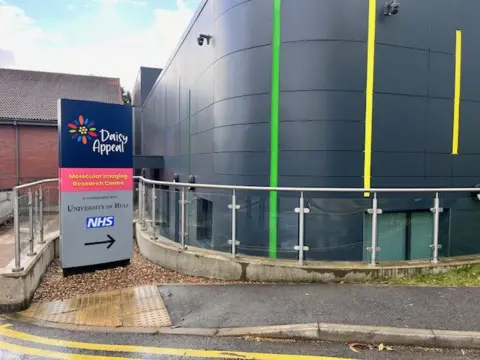New tech to improve cancer detection and treatment
 BBC
BBCState-of-the-art technology that improves detection rates for cancer and other diseases will be officially unveiled at an East Yorkshire hospital on Friday.
The cyclotron generates particles or radiotracers which are used to detect cancer and conditions such as Alzheimer's, heart and liver disease.
The equipment is at the new Molecular Imaging Research Centre at Castle Hill Hospital, near Cottingham.
Prof Nick Stafford, who founded the Daisy Appeal which raised money for the £9m centre, said it was the only one of its kind in the north of England.
"It can bring early diagnosis of a number of conditions, and a lot of centres can't do it," he said.
"It is good news for Hull in terms of medical technology and accurate detection.
"Some patients are having to travel to London at the moment. Once we're fully up and running, patients won't have to make long journeys south."
Other medical facilities in the UK that use similar technology are in London, Oxford, Cambridge, Edinburgh and Cardiff.

The cyclotron, which cost more than £1m, was delivered to the East Yorkshire site in 2022 but the project was delayed by the pandemic.
Prof Stafford said: "This will not only allow very accurate detection but also allow much more specific pinpointing of disease, and I think it will bring early diagnosis in a number of cases.
"There is incontrovertible evidence that the earlier that you catch a cancer, the more likely a cure is when you treat it."
After the official handover on Friday, work will begin on testing, commissioning and licensing, with the first radiotracers expected to be produced at the start of 2025.
Listen to highlights from Hull and East Yorkshire on BBC Sounds, watch the latest episode of Look North or tell us about a story you think we should be covering here.
